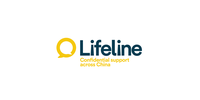Mental health awareness in the workplace is a rising trend, as mental health issues are recognized as one of the biggest contributors to declining productivity, absenteeism, staff turnover, work withdrawal behaviors and more concerning outcomes in the workplace. Evidence from WHO suggests that nearly half of the world's population is affected by mental illness at some point of their life. According to recent WHO data (2017) 264 million people are now living with depression. That amounts to a total of 4.4% of the global population who suffer from a depressive disorder, with an additional 3.6% who experience an anxiety disorder. The estimated economic impact of depression and anxiety, as just two examples of mental health concerns that can impact workplaces and employees, is US$ 1 trillion per year in lost productivity.
The pandemic has compounded the existing challenges individuals face in coping with their mental health and the way employers handle these concerns, stressing the importance of mental health strategies in the workplace to support those in need. The impact of the pandemic in mental health is particularly troubling as, according to the World Economic Forum, one in three adults is depressed or anxious due to COVID-193. And while the Covid might become a manageable 'New-Normal', experts foresee that mental health issues will far exceed the duration and impact of COVID itself.
At the same time, talking about mental health struggles has historically been a taboo subject, for employees and employers alike. This is where Lifeline wants to instill change: talking about mental health has enormous benefits on an individual level as it works to prevent major mental health crises and increase well-being, and workplaces that promote mental health are more likely to reduce absenteeism and turnover intention, and increase productivity and team performance. The effects of having a positive and proactive workplace culture of supporting and addressing mental health therefore cannot be underestimated in terms of its benefits to employees and employers alike.
We believe the event will be a great opportunity to discuss how the pandemic has impacted this topic and exchange around the ever more important topic of mental health at work.
* Psychological safety is defined as a team climate characterized by interpersonal trust and mutual respect in which people are comfortable being themselves. [Professor Amy Edmondson, Harvard Business School] Google's research of its own workforce revealed that psychological safety was the most important team norm for high performing innovative workplaces. Positive effects of a psychological safe and high trust workplace include to wide-ranging benefits, including increased confidence, creativity, trust and productivity8. Research from 2017 found that people in high-trust companies report 74% less stress, 29% more satisfaction with their lives and 40% less burnout than people at low-trust companies.
This event is jointly organized by the German Chamber of Commerce in China and Lifeline, the only English Speaking Crisis Helpline service across China.
(Photo by Tim Mossholder on Unsplash)


